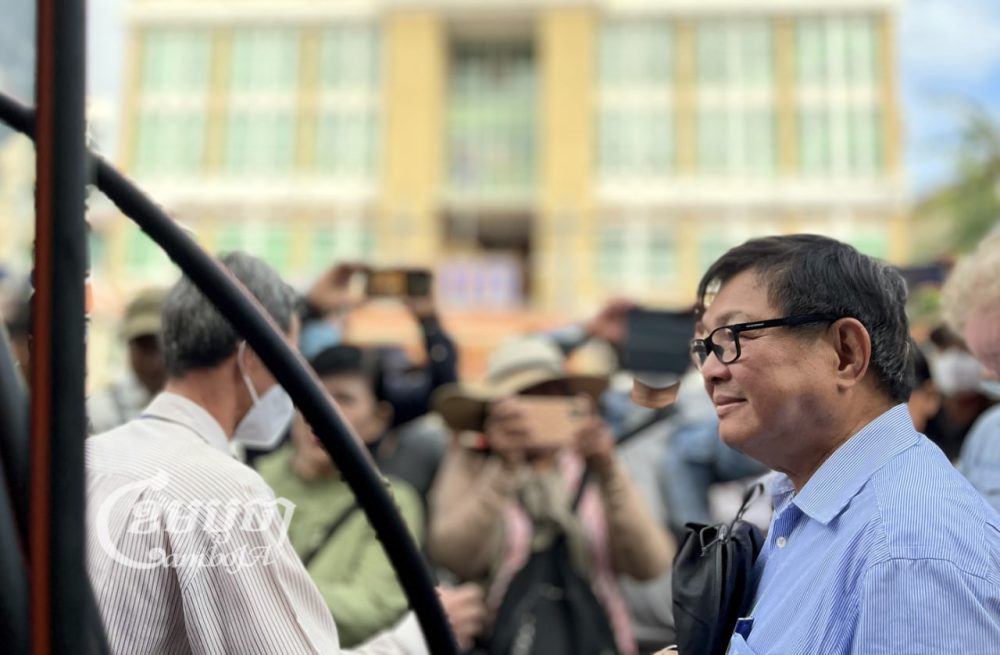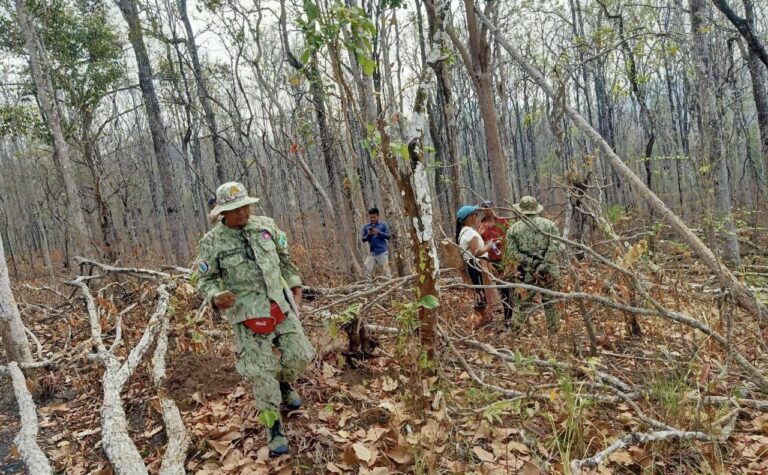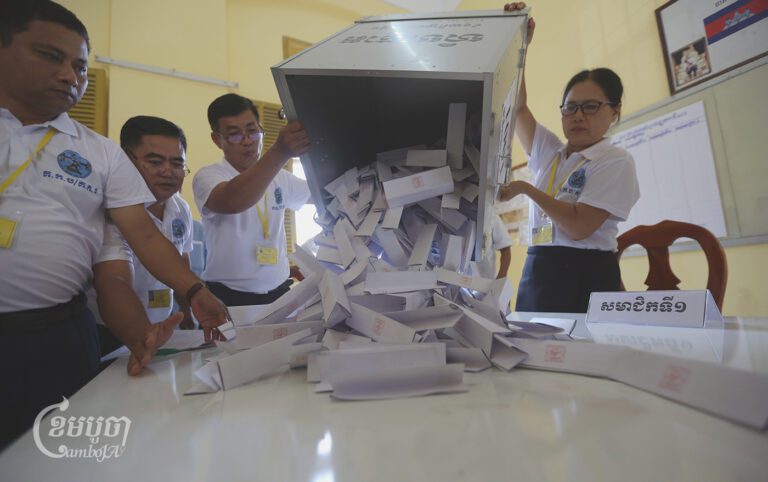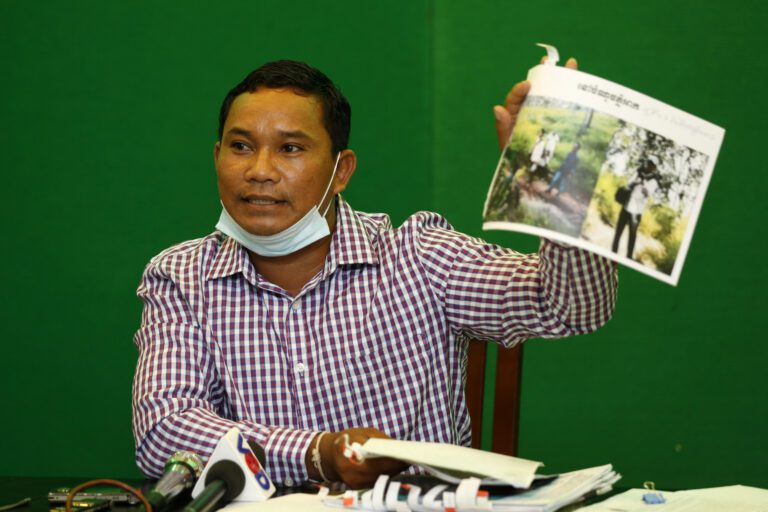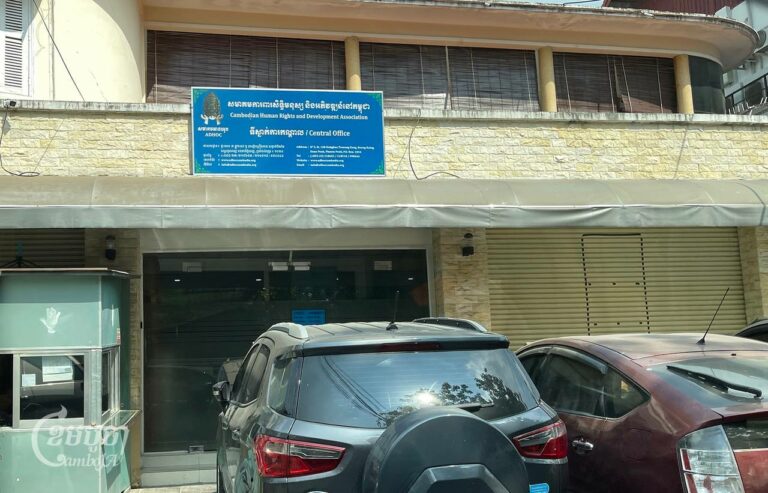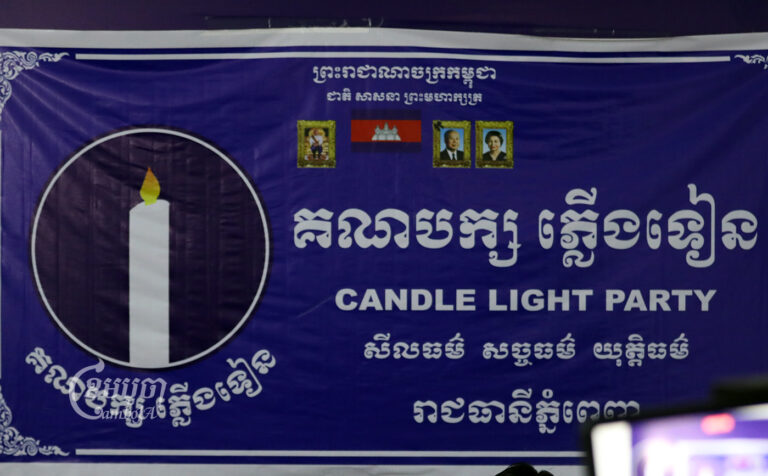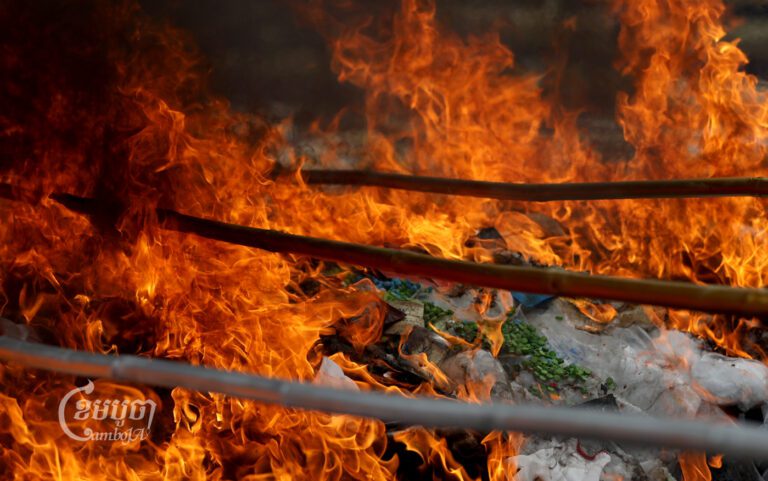The Phnom Penh Municipal Court on Thursday tried opposition Candlelight Party vice president Son Chhay, who was sued for defamation by the National Election Committee for criticizing the June commune elections.
The verdict is expected to be announced October 7, when the court will also hear the second defamation suit filed against him, by the ruling CPP.
Deputy prosecutor Phlang Sophal asked the court to convict Chhay under Article 305 of the penal code. If found guilty, he could be fined up to $2,500.
“We have found that Son Chhay has indeed committed defamation that undermines the dignity of the NEC, and what he claims is a distortion of the facts and baseless,” he said.
After the June 5 commune elections, Chhay told the media there had been irregularities and electoral fraud. The NEC filed suit saying he had defamed the election body, while the CPP filed its own defamation suit asking for $1 million in damages for Chhay’s claim that the NEC was biased in their favor.
While the NEC has not asked for damages, Yich Samethy, the NEC’s lawyer, called for the maximum fine of $2,500 and asked Chhay to make a public apology.
Chhay and his lawyer Chuong Choungy denied there had been any defamation, saying that the case was politically motivated.
“I still believe that I am not at fault. I just [made those statements] to promote multi-party democracy,” Chhay said. “I could not prevent charges filed against me, but a fair trial will boost the credibility of this institution.”
Chhay noted that his party filed complaints about irregularities directly to the NEC, but rather than responding or investigating, they sued him for defamation.
“We just raised the issue; we want the next election to be better. We have no intention to destroy the NEC’s image at all and we understand that the NEC still has things to improve,” he said.
Choungy, the lawyer, said there was no doubt the case was politically motivated and should never have been brought to court.
“What Son Chhay said in an interview with The Cambodia Daily did not affect the NEC’s dignity because he did not mention the NEC,” Choungy pointed out. “It is the words of politicians to advocate for improving the body.”

Sam Sorida, NEC deputy secretary-general, said that some of the complaints filed by the Candlelight Party came after the deadline—making it impossible for them to address or investigate them.
According to Article 30 of the election law, said Sorida, political parties can file a complaint regarding irregularities up to 11:30 a.m. the day after Election Day.
“Some of the complaints were outdated, so there was no credible evidence to show irregularities,” he said, however, he acknowledged there were some minimal irregularities in Form 1102—where vote counts are tallied—due to the NEC’s use of short-term contracted officials.
In the commune elections, the CPP won 1,648 out of a total of the country’s 1,652 commune chief positions, and the Candlelight Party took four. The ruling party also won 74.3%, or 9,376 out of the 11,622 commune council seats.
After the commune elections, five election observer organizations released a report detailing irregularities including the presence of armed forces at polling stations and inadequate efforts to ensure voters were properly registered.
The Committee for Free and Fair Elections in Cambodia (Comfrel) released a report on Tuesday noting some irregularities during the election.
Comfrel found that some electoral officers from Commune Election Commissions and Ballot Counting Commissions were ruling party activists.
COMFREL also observed some irregularities related to newly selected officers who have a close connection with each other, such as a father-in-law and son-in-law working in the same office.
The report also found irregularities on Form 1102, noting that the form shown by the NEC was different from the actual printed forms in a number of cases—including missing data and scratched-off figures.
Korn Savang, a program coordinator with COMFREL, said the judiciary should never be used to adjudicate election issues.
“I have never seen the referees sue contestants anywhere in the world,” he said. “Using the courts in electoral procedures is not in line with the principles of the election law, while the NEC is a state institution.”


